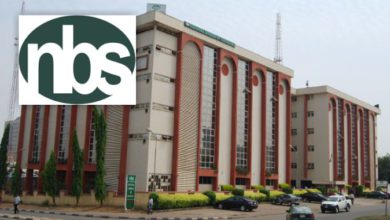

Guaranty Trust Bank (GTB), Nigeria’s largest Bank by market capitalisation, trades at a price to earnings (PE) ratio of 4 and price to book (p/b) value of 1.4x, Zenith Bank the second largest by market capitalisation has a PE of 3, p/b value of 0.7x dividend yield of 15 percent.
The Nigerian Stock Exchange (NSE) banking index has underperformed the broader market, returning -16.6 percent year to date, compared to a -11.55 percent return for the NSE all share index (ASI). Nigerian Bank stocks are cheap, when compared to frontier market peers, despite a majority of them still declaring profits and paying out juicy dividends.
First Rand, South Africa’s largest bank trades at a PE multiple of 12 and p/b value of 2.62x, for instance. The two biggest Nigerian Banks just announced interim dividend pay-outs of 0.30k each. For GTB it is equivalent to N8.829 billion and Zenith N9.42 billion or a total of N18.25 billion ($50 million). If you wanted to be a shareholder in GTB you can currently buy it on the floor of the stock exchange for N27.9 per share (Friday closing price). In the past year it traded as high as N39/share. Zenith can be bought for N18.6 per share today even as it traded as high as N26.85 per share in the past year.
GTB recorded profit after tax of N99.1 billion in the half year (H1) 2019 period, while earnings per share (EPS) rose 3.6 percent to N3.5, while Zenith saw H1 profits rise 8.7 percent to N88.8 billion, while EPS printed at N2.83. Clearly both banks are quite profitable and willing to reward owners of stock, so why are investors pricing the shares at such a discounted level to fair value?
Banks in Nigeria have been facing a number of headwinds which investors fear could dampen profits in coming years. On the macro-side growth remains sluggish, inflation high, real per capita incomes falling, and unemployment elevated, while on the policy side regulatory uncertainty is beginning to creep in. In a circular issued last month, the Central Bank of Nigeria (CBN) set the minimum loan-to-deposit ratio (LDR) for banks at 60 percent in a bid to spur lending.
This means that for every N100 in deposits banks hold, they must at least lend out N60 to retail clients and small businesses, instead of binging up of ‘risk free’ Federal government securities. As a result, investors are fretting that profitability of the banks may take a hit in the short to medium term due to potential reduction relatively easy to earn interest income from lending to the Federal Government, as opposed to the difficult (and inherently risky) business of granting consumer and other forms of retail/SME credit.
Another potential headwind for lenders in Nigeria would be the coming licensing by the CBN of Telecommunication firms to allow them play in the mobile money space, which could be a huge game changer for financial inclusion and of course banking as we know it. The country’s mobile operators; MTN, Airtel, Globacom and 9mobile recently announced their commitment to deepen financial inclusion to at least 90 million customers in about 2 years, once issued payment service banking (PSB) or mobile money licenses.
The four Telco’s combined have some 173.6 million customers, compared to the 21 deposit money banks (DMBs) with about 30 million bank accounts with unique bank verification numbers (BVNs).
The Telco’s also have the resources to deploy in the coming fight. MTN Nigeria Full Year 2018 results showed it had 21.6 million smartphone users on its network, Ebitda margins of 44 percent and revenues eclipsing the N1 trillion mark. No DMB in the country currently boasts such revenues.
There is also the issue of attractiveness of bonds relative to equities. With FGN bonds on average yielding 14 percent per annum and stocks returning -11.55 percent year to date, it’s a no brainer that investors will rotate into bonds from stocks. So are bank stocks currently a value trap?, defined as a stock that appears to be cheap because it has been trading at low valuation metrics such as multiples of earnings, cash flow or book value for an extended time period.
The trap springs however when investors buy into the company at low prices and the stock continues to languish or drop further. We think the answer is not quite. Huge opportunities abound in the banking space largely due to huge demographic gains to be had from a population expected to hit 350 million by 2050, cost savings from digital and technology innovations by banks, and the upside from being able to solve the financing needs of millions of Nigerians.
Lenders have no alternative to real banking as opposed to financial engineering, which should largely be left for investment banks and other players in the capital markets. However there will be winners and losers, and investors will be well served by closely monitoring their holdings of bank stocks, trading around positions, and betting big on those names that are driving innovation in the space.



